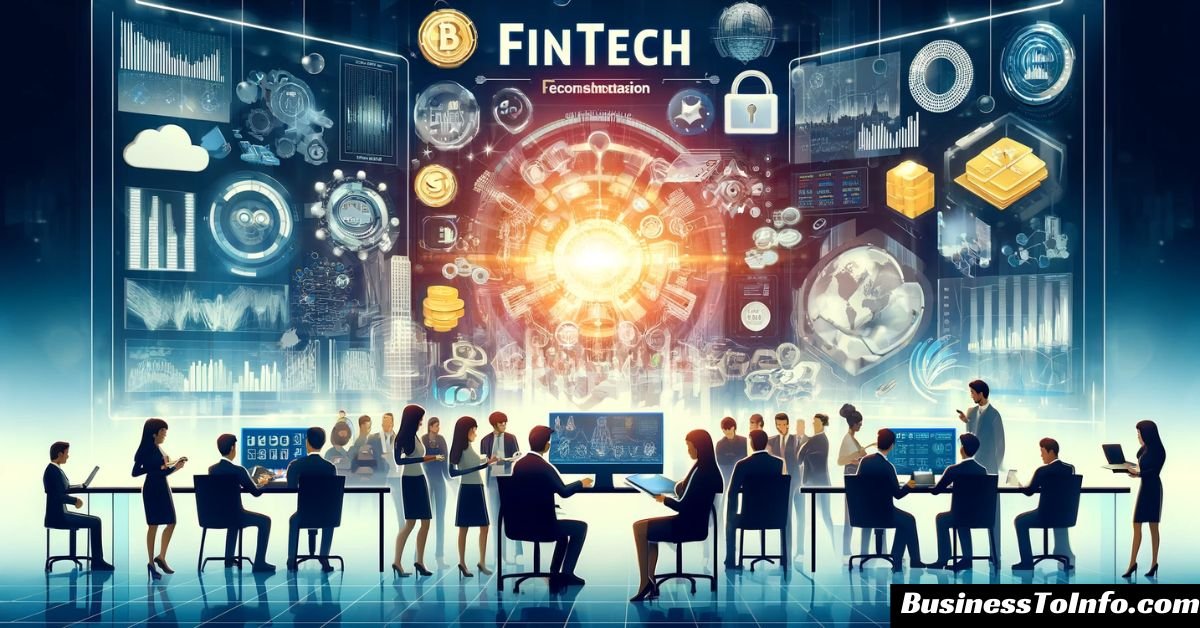Introduction to Fintech Innovations
Fintech innovations are revolutionizing the financial industry by introducing new technologies that improve efficiency, enhance security, and broaden accessibility. https//fintechasia.net is a valuable resource for keeping up with these innovations, providing detailed analyses and expert perspectives on the latest advancements. By staying informed, businesses and individuals can better navigate the evolving fintech landscape.
Emerging Trends in Financial Technology
Several key trends are currently driving fintech innovation, including:
- Digital Transformation: Financial institutions are embracing digital solutions to enhance customer experience and streamline operations.
- Contactless Payments: The adoption of contactless payment methods has surged, driven by consumer demand for convenience and safety.
- Fintech Integration: Traditional financial services are increasingly integrating with fintech solutions to offer more comprehensive services.
- Personalized Financial Services: AI and data analytics are enabling highly personalized financial products and services tailored to individual needs.
Artificial Intelligence and Fintech
Artificial intelligence (AI) is playing a critical role in fintech by automating processes, improving decision-making, and enhancing customer interactions. Key applications of AI in fintech include:
- Robo-Advisors: AI-driven platforms that provide automated investment advice based on user preferences and risk tolerance.
- Fraud Detection: Machine learning algorithms that analyze transaction patterns to identify and prevent fraudulent activities.
- Customer Service: AI-powered chatbots and virtual assistants that offer 24/7 support, resolving customer queries quickly and efficiently.
Blockchain and Decentralized Finance (DeFi)
Blockchain technology is transforming the financial industry by enabling secure, transparent, and tamper-proof transactions. Key aspects of blockchain in fintech include:
- Cryptocurrencies: Digital currencies like Bitcoin and Ethereum that facilitate decentralized transactions.
- Smart Contracts: Self-executing contracts with the terms of the agreement directly written into code, enabling automated and secure transactions.
- DeFi Platforms: Decentralized finance platforms that provide financial services like lending, borrowing, and trading without intermediaries.
The Evolution of Digital Banking
Digital banking is revolutionizing the traditional banking model by offering online-only services that eliminate the need for physical branches. Benefits of digital banking include:
- Convenience: 24/7 access to banking services from anywhere.
- Lower Costs: Reduced operational costs leading to lower fees for customers.
- Enhanced Services: Innovative financial products and services tailored to modern consumer needs.
Fintech Solutions for Financial Inclusion
Fintech is playing a crucial role in extending financial services to underserved populations, promoting financial inclusion through:
- Mobile Banking: Providing banking services to remote and rural areas via mobile devices.
- Microfinance: Offering small loans to individuals and businesses without access to traditional banking services.
- Digital Wallets: Enabling secure and convenient transactions for those without access to traditional banking infrastructure.
Regtech: Navigating Compliance with Technology
Regulatory technology (regtech) helps financial institutions comply with regulatory requirements more efficiently through:
- Automated Compliance: Using software to monitor and report compliance activities.
- Risk Management: Identifying and mitigating risks associated with regulatory breaches.
- Data Analytics: Leveraging big data to ensure adherence to regulatory standards.
Cybersecurity in the Fintech Era
As fintech continues to grow, so do cybersecurity threats. Addressing these challenges is critical to maintaining trust and security in financial transactions. Key cybersecurity measures include:
- Advanced Encryption: Protecting data integrity and confidentiality.
- Two-Factor Authentication (2FA): Adding an extra layer of security to user accounts.
- Continuous Monitoring: Regularly updating and monitoring security systems to prevent breaches.
Sustainable Fintech
Sustainability is becoming a key focus in fintech, with innovations aimed at reducing environmental impact and promoting sustainable practices. Examples include:
- Green Banking: Financial institutions offering eco-friendly products and services.
- Sustainable Investments: Fintech platforms facilitating investments in sustainable projects.
- Energy-Efficient Technologies: Developing energy-efficient solutions to reduce the carbon footprint of financial operations.
Investment Opportunities in Fintech
The fintech sector presents numerous investment opportunities, driven by continuous innovation and market growth. Key areas of investment include:
- Digital Payment Solutions: Companies developing new and innovative payment methods.
- Blockchain and Cryptocurrencies: Investments in blockchain technology and digital currencies.
- AI and Machine Learning: Funding AI-driven fintech solutions for enhanced financial services.
Consumer-Centric Fintech Innovations
Consumer behavior is influencing the development of fintech solutions, leading to innovations that prioritize user experience and convenience. Trends include:
- Personal Finance Management: Apps that help users manage their finances more effectively.
- Peer-to-Peer Lending: Platforms that facilitate direct lending between individuals.
- Subscription Services: Fintech solutions offering subscription-based financial products.
Future Predictions for Fintech
The future of fintech is marked by continuous innovation and increasing integration with traditional financial systems. Predictions include:
- Widespread Adoption of AI and ML: More sophisticated AI applications across financial services.
- Expansion of DeFi: Greater adoption of decentralized finance platforms.
- Enhanced Cybersecurity Measures: Development of more advanced security solutions to counter evolving threats.
- Increased Regulatory Clarity: More defined regulations supporting fintech innovation while ensuring consumer protection.
Conclusion
The fintech landscape is constantly evolving, driven by groundbreaking innovations and emerging trends. Staying informed about these developments is crucial for anyone involved in the financial technology sector. https//fintechasia.net offers valuable insights and comprehensive coverage of the latest fintech trends, helping readers navigate this dynamic industry and stay ahead of the curve.
For More Information Visit: Business To Info




